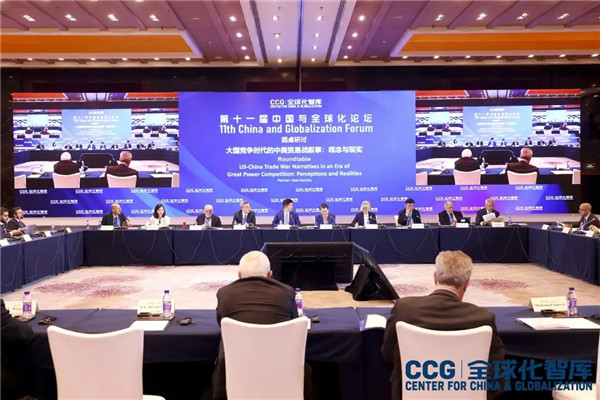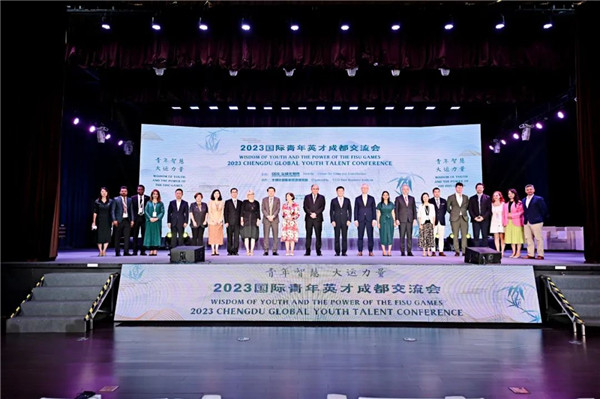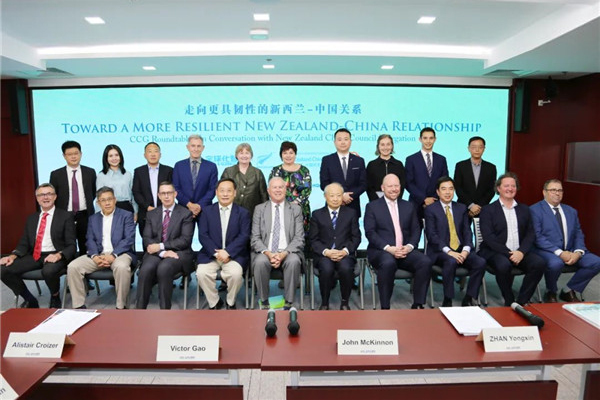CCG, CSIS Co-host Discussion about WTO and Global Governance Development
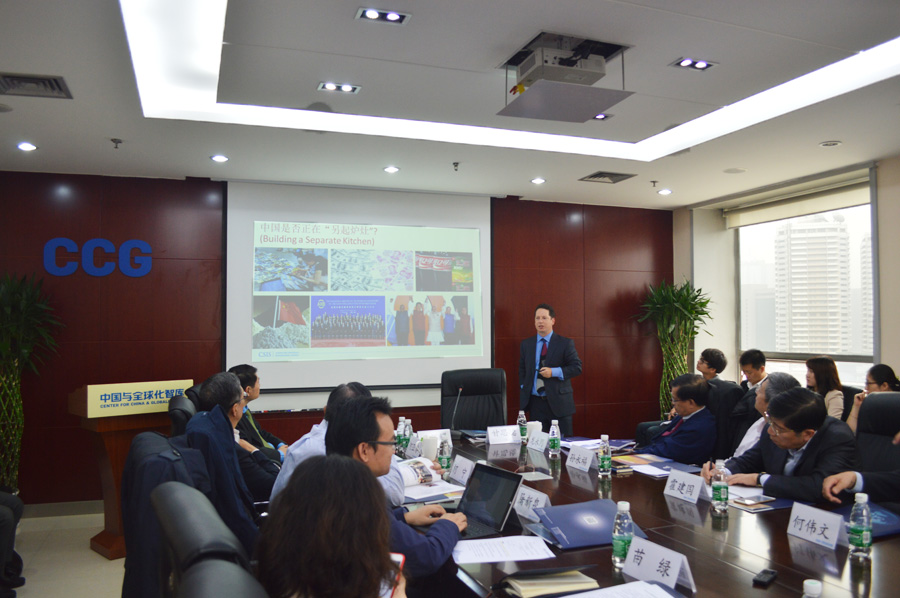
To commemorate the 15th anniversary of China’s accession to WTO, the Center for China and Globalization joined the Center of Strategic and International Studies, one of the most prestigious US think tanks, has hosted a seminar on WTO and global governance development on Oct. 18, 2016. It is the first time for these two prominent think tanks from China and the U.S. to hold an academic event together.
The seminar was chaired by CCG President Wang Huiyao and gathered a number of CCG’s senior research fellows who are top experts on international relations and economic issues, including Long Yongtu, former Vice Minister of Commerce and Chairman of CCG’s Strategic Advisory Board, and He Yafei, former Vice-Minister of the Ministry of Foreign Affairs and China’s coordinator at G20. CSIS side was represented by the deputy director of China program Scott Kennedy.

Long pointed out the two key elements in global governance are– setting up the international norms for economic, political and social development and building up global/regional institutions to enforce those rules. At the moment both objectives need to be further developed and strengthened. In terms of China’s role, Long clarified that having been complying to and benefiting from WTO rules in the past 15 years, China is committed to playing a constructive role in WTO instead of a challenger, providing more input to rule setting in some newly-emerging economic areas such as e-commerce and climate adaptation. China is also determined to contributing more resources to the world economic institution, setting up the Asian Infrastructure Investment bank as a supplement to World Bank and Asian Development Bank. Long believes there is a great potential for China and the United States to work jointly on developing new global governance rules, and hopes the think tanks in the two countries can provide constructive advice to their respective governments in this regard.
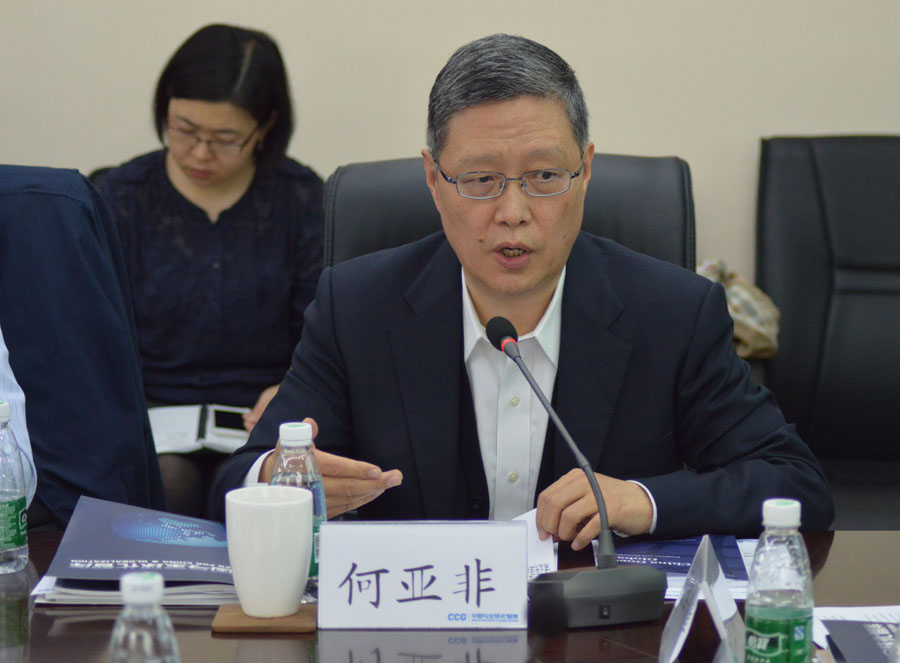
He Yafei also shared his view about China’s role in global governance development. He argued global governance has changed dramatically in the past decades mainly in four aspects: 1) emergence of China and other developing countries reshapes global governance system that was dominated by the western countries and causes tension in international relations; 2) global economic governance mode guided by America’s economic neo-liberalism is no longer effective while diversification of governance mode becomes more realistic and China’s experience is becoming more popular; 3) the defect existing in global economic governance becomes more obvious; 4) the side effect of the globalization piles up and leads to the rising of a de-globalization tide that exerts negative impact on global free trade and investment mechanism. China, as he proposed, should enhance its role in further promote globalization by maintaining the world order and governance system centered on the United Nations, while contributing its ideas and experience to improve the system.

CCG President Wang Huiyao reviewed China’s achievement in promoting world trade and participating in global governance since its joining into WTO. He also highlighted the role of think tanks in “Track II” diplomacy to advise policymakers and create a better social environment to help China engage international community for globalization.

Scott Kennedy emphasized the goal of setting global governance rules is to not only foster cooperation but also foster managed competition. He disagreed with some Western scholars who believe China is challenging existing global governance system by establishing AIIB. He believes China has overall contributed to the building of a harmonious and integrated system and effectively helped reduce conflicts. Kennedy also argued that China’s participation in global governance has been through three phases – observe, participate, and lead, in which China has inevitably encountered friction with the western countries for their different cultural and economic situation. Taking anti—dumping for instance, he believes it is not an ideal or fair international norm with an intention to protect domestic industries from international competition. He suggested China and the United States join their hands in global governance and reform the rules of the game.
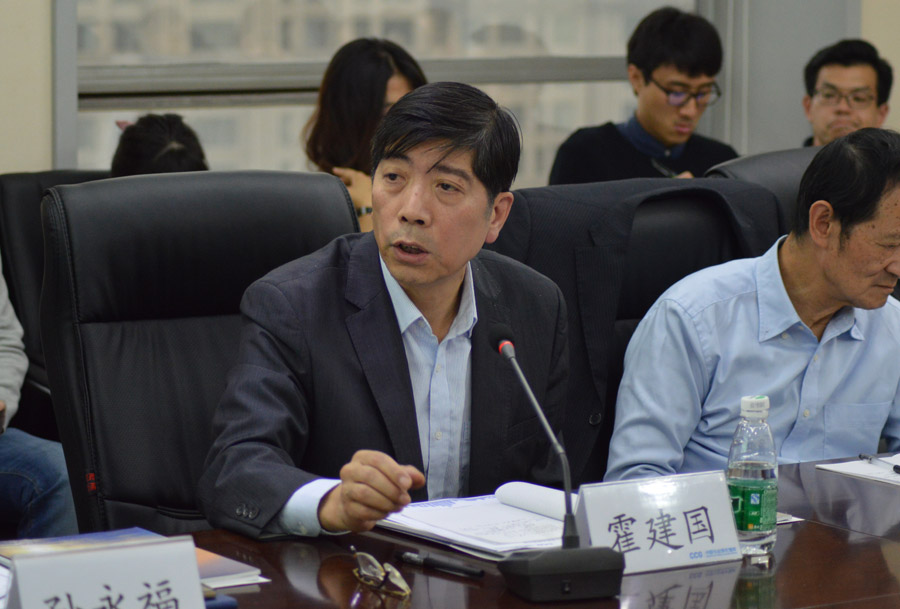
Huo Jianguo, CCG’s senior research fellow and former President of Chinese Academy of International Trade and Economic Cooperation at the Ministry of Commerce, argued that global governance is based on cooperation and collaboration of great powers. He advised China to more proactively participate in global governance, developing implementation measures and challenging unreasonable international norms.
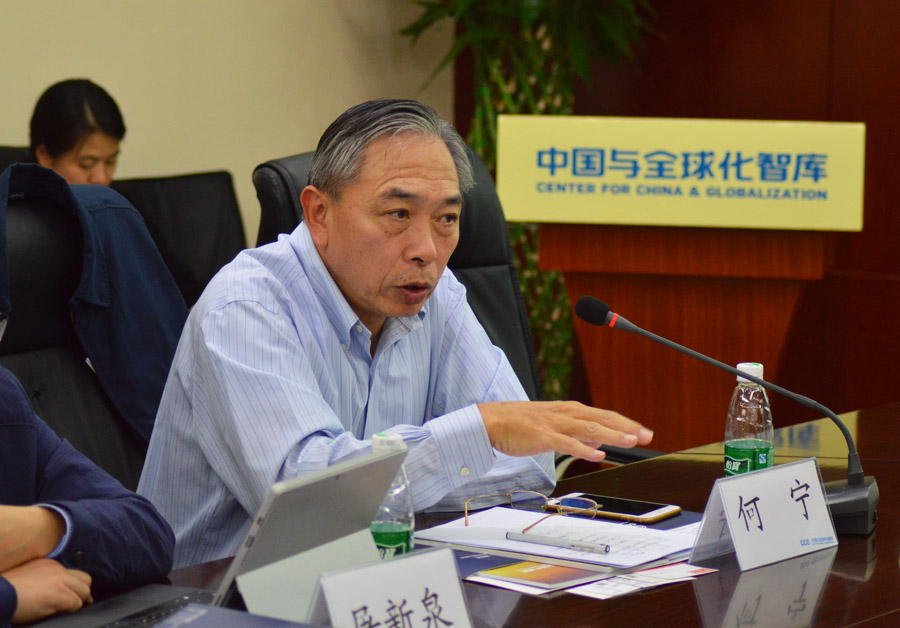
He Ning, former director-general of the Department of American and Oceanic Affairs at the PRC Ministry of Commerce, noted that China has benefited from WTO’s multilateral mechanism in two aspects – it helps China gain a more equal status in international competition and prevent domestic politics from disturbing international trade policies. He also agreed that China will maintain and improve such a multilateral mechanism instead of creating a new one to challenge it.

Former Director General at European Affairs Department of the Ministry of Commerce Sun Yongfu suggested that China should continue to play a constructive role in global governance and consider more about the mechanism of how to balance the interests of different parties so that all countries equally benefit from it.
LocationBeijing
